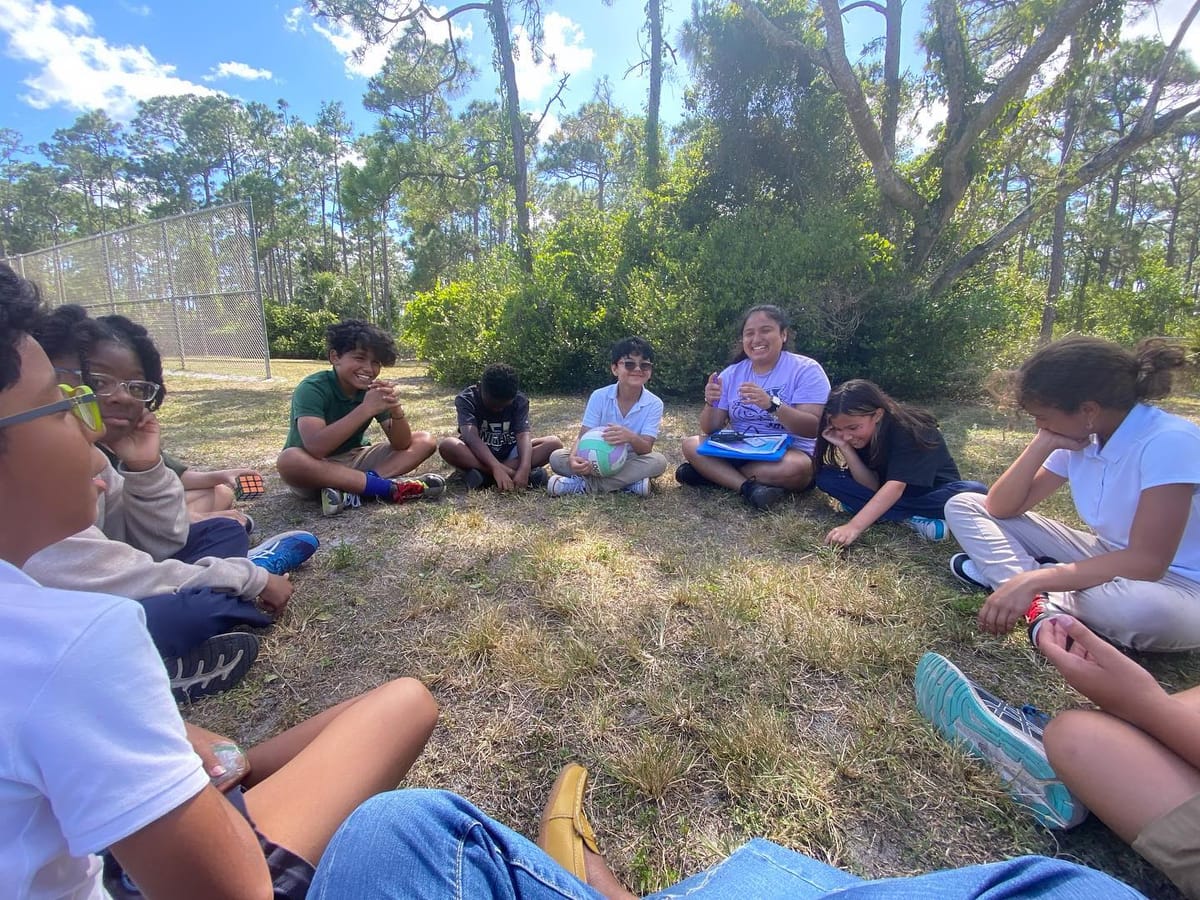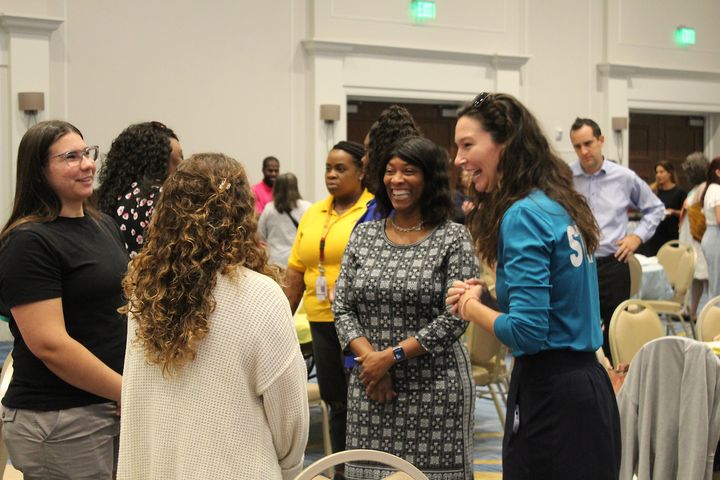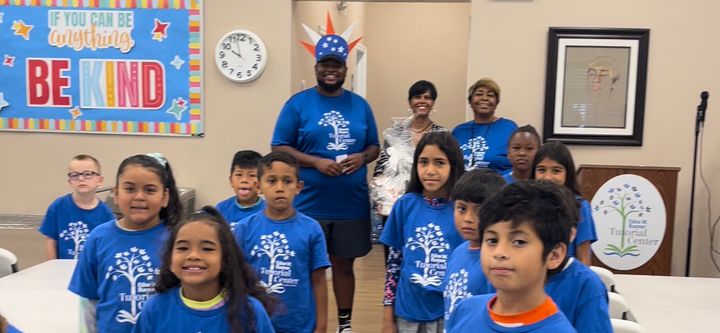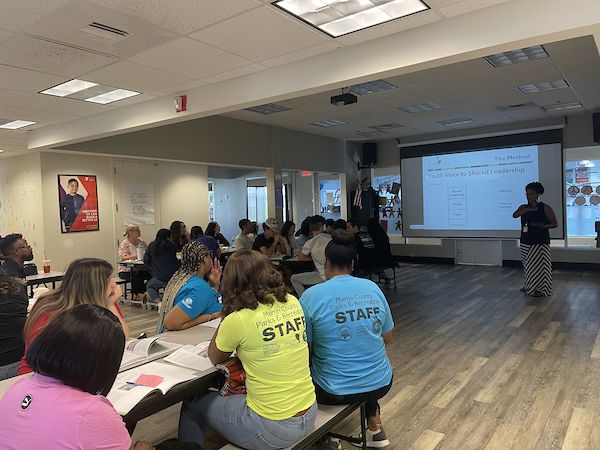Written by Knellee Bisram, Well-being and Life Skill Specialist, Prime Time Palm Beach County.
The Beginning
Seven years ago, Prime Time Palm Beach County and other partnering youth-serving entities in Palm Beach County embarked upon a journey to equip children and youth with resilience, well-being and life skills. Over the course of five years, we experimented and learned best practices alongside other out-of-school time (OST) communities and school districts across the United States, reinforcing much of what we already knew and were practicing in the field of positive youth development, mindfulness and emotional intelligence. We took an “inside-out” approach where adults learned to embody and practice these skills for their own well-being and peer relationships and in turn model to and teach important “kernels of practice”(i) to youth through an intensive professional development learning pathway.
What We Learned
While our implementation and language might have varied slightly from other communities, similar lessons were learned across the country. Some notable ingredients for building youth resilience in OST (ii) were the prioritization of adult practice of the five emotional resiliency skills; a common language about these skills; the integration of short repetitive rituals that implicitly build these skills across all OST activities; and the addition of a dedicated activity on the OST schedule for explicit resiliency skill-building. The latter became “institutionalized” in participating Palm Beach County OST sites as “the Afternoon Meeting”, drawing from Responsive Classroom’s “Morning Meeting” K-6 community building model, with the twist of incorporating an explicit lesson where youth learn, practice and reflect on a resiliency skill.
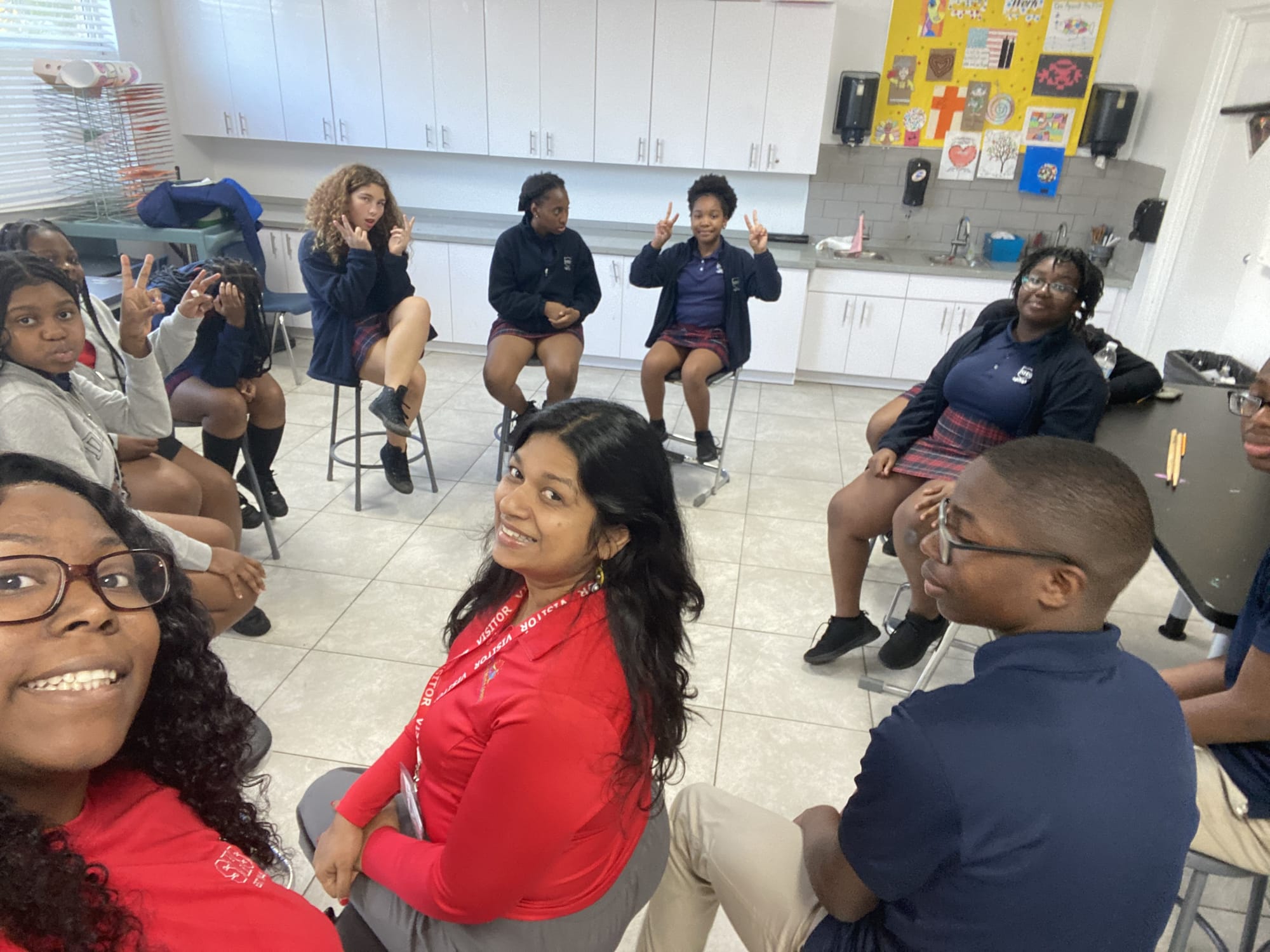
What is Afternoon Meeting?
In essence, I would describe our Afternoon Meeting as a restorative well-being circle where all youth intentionally build a habit to turn inward and cultivate a repertoire of language and inquiry skills to navigate their inner and outer landscapes (iii). Given our emphasis on adult practice among participating OST sites (iv), staff feedback in coaching sessions and trainings highlight increases in their own ability to self-regulate and have more empathetic relationships at work and at home, increased happiness at work. In OST sites where Afternoon Meeting was implemented at least three to five times per week, OST Directors at our quarterly leadership communities of practice reported positive shifts in youth behavior, improvements in conflict resolution and emotional regulation and a warmer, kinder climate and culture. Parents and guardians were invited to participate in Afternoon Meetings and encouraged to practice skills at home (v).
The Afternoon Meeting in a Sea of Change
Yet perhaps the most important part of our Afternoon Meeting story is how it has endured in afterschool as a practice through many changes – a pandemic that limited in-person interaction, an evolving political and legislative landscape related to mental health and resiliency, and the constraints of transitioning to integrating resiliency, well-being and life skills in the post-PSELI phase. The COVID pandemic elevated and validated the need for this dedicated time for youth and adults in OST to connect, hold space, share, and reflect on their social and emotional realities during a difficult time, often online or in less ideal, socially distanced spaces. The recent state-level resiliency and health standards changes propelled us to reflect more deeply and retain the core Afternoon Meeting “kernels of practice” while adapting to a new way of communicating about these important skills – which we now call Well-being and Life Skills or Skills for Learning and Life (SLL) (vi) in Palm Beach County.
Innovating in the New Reality
Further refinements have been made to transition from a multi-year to a yearlong, to the current semester-long Well-being and Life Skills Initiative (vii) cohort model. This allows us to accommodate more optimal learning timelines for OST practitioners dedicated to adult practice and youth skill-building. What has emerged from these constraints is more OST staff innovation, finding creative ways to “squeeze in” this valuable connection time amid scheduling and staffing challenges, and diverse youth needs. During OST observations we were able to capture some of these Afternoon Meeting innovations in action.
In the Spring 2024 cohort, a practitioner at FAU Pine Jog Environmental Center afterschool program incorporated “sounds of nature” as a mindful listening practice for self-regulation while emphasizing care for the environment in an outdoor Afternoon Meeting.
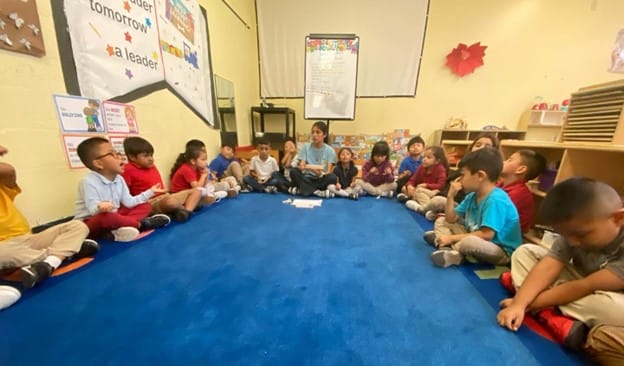
The Guatemalan Mayan Center South Grade, now in their third year of implementation, write their own bilingual Afternoon Meeting lesson plans integrating quality improvement goals and blending in STEAM as the resiliency and life skill-building activity, to address time and scheduling limitations. Inspired by this innovation, Prime Time now offers programs implementing both STEAM and Well-being and Life Skills similar strategies in a new training called Well-being and STEAM: Perfect Together.
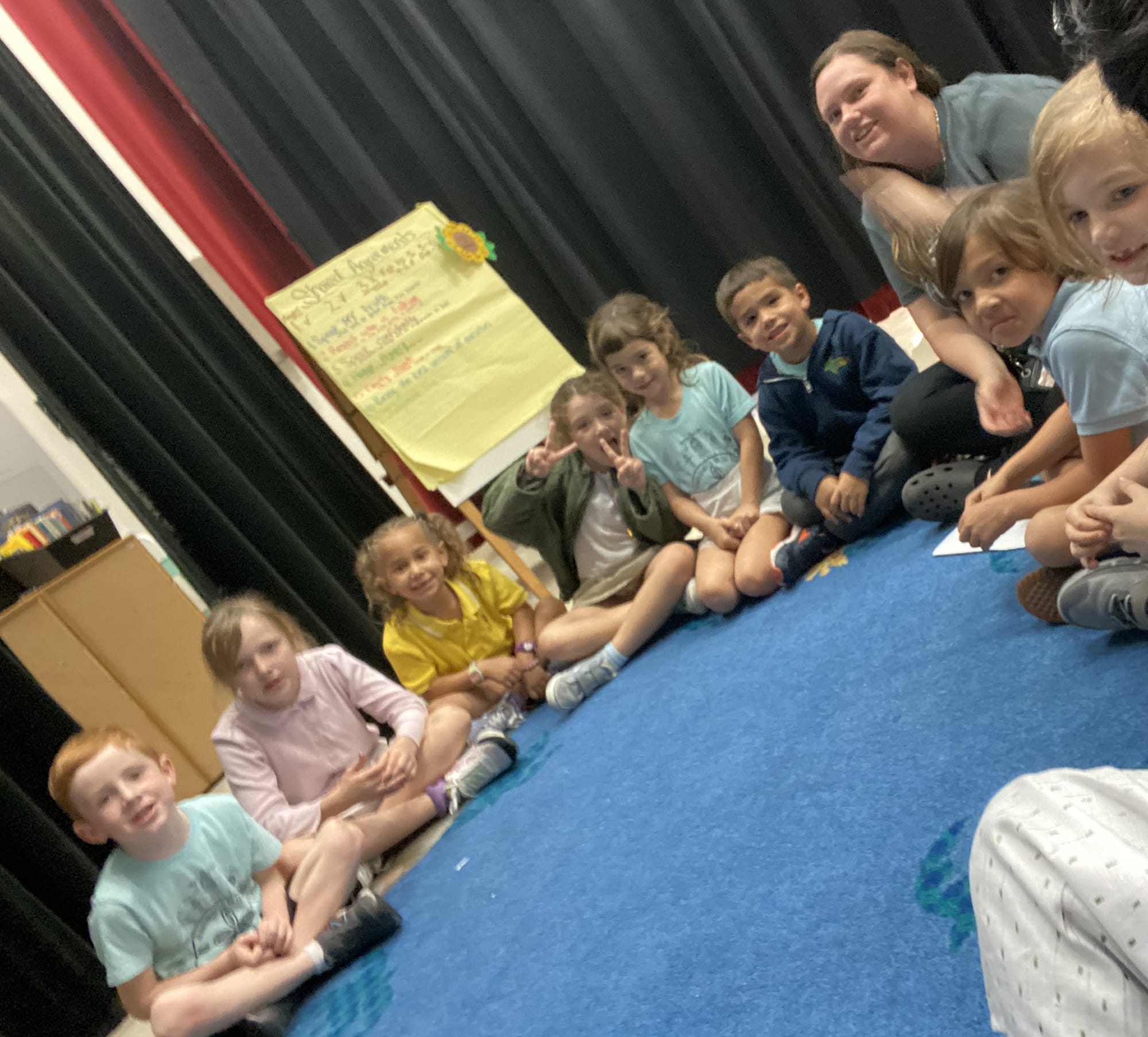
In the most recent Fall 2024 cohort, at Palm Beach Public Afterschool, the director and activity leader co-facilitated an Afternoon Meeting circle with an art and nature activity centered on growing in kindness traits with K-2 youth.
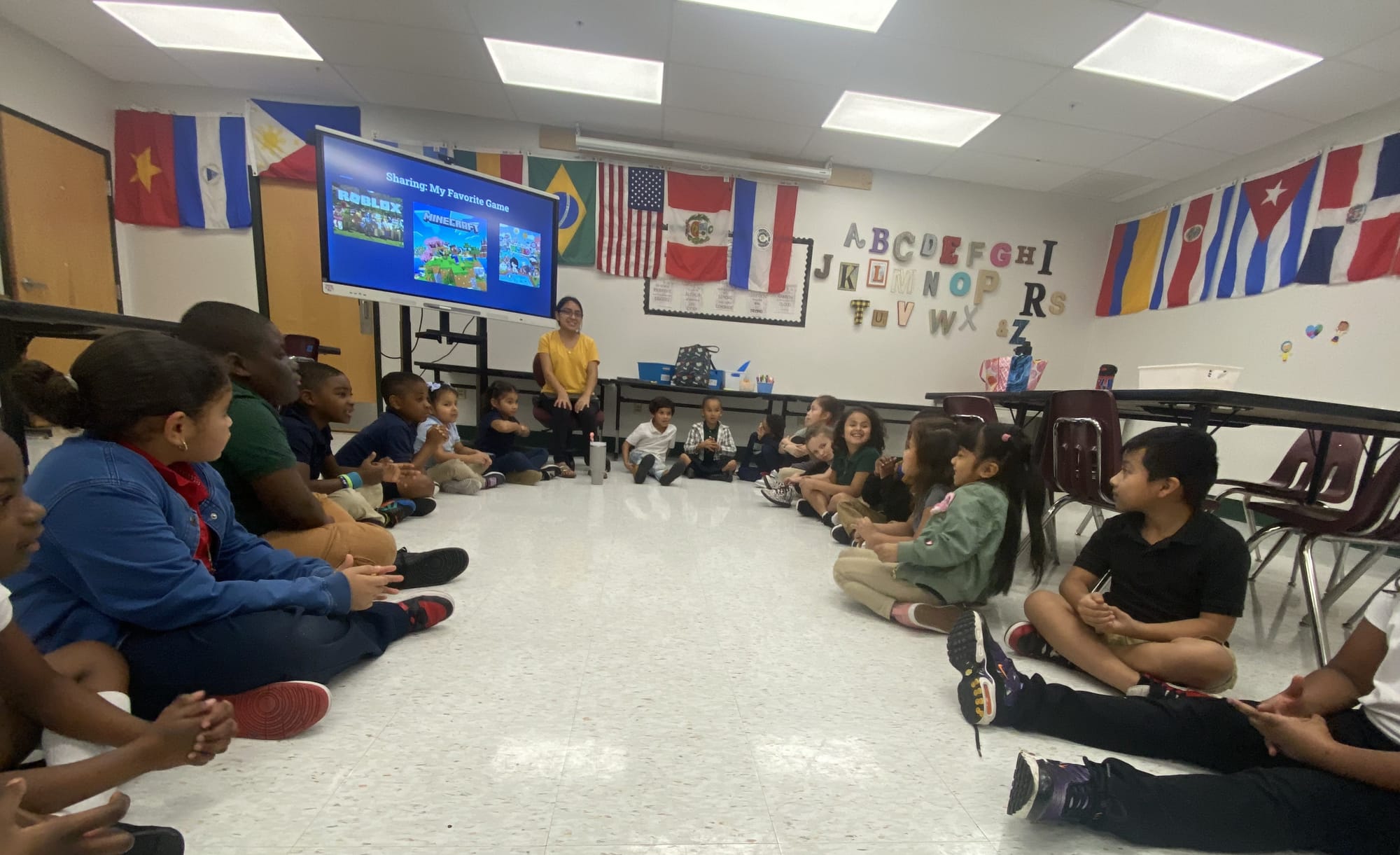
Highland Elementary Afterschool Program, like the Guatemalan Mayan Centers at South Grade and Highland, often facilitate their Afternoon Meeting or “Reunión Vespertina” in Spanish or bilingual.
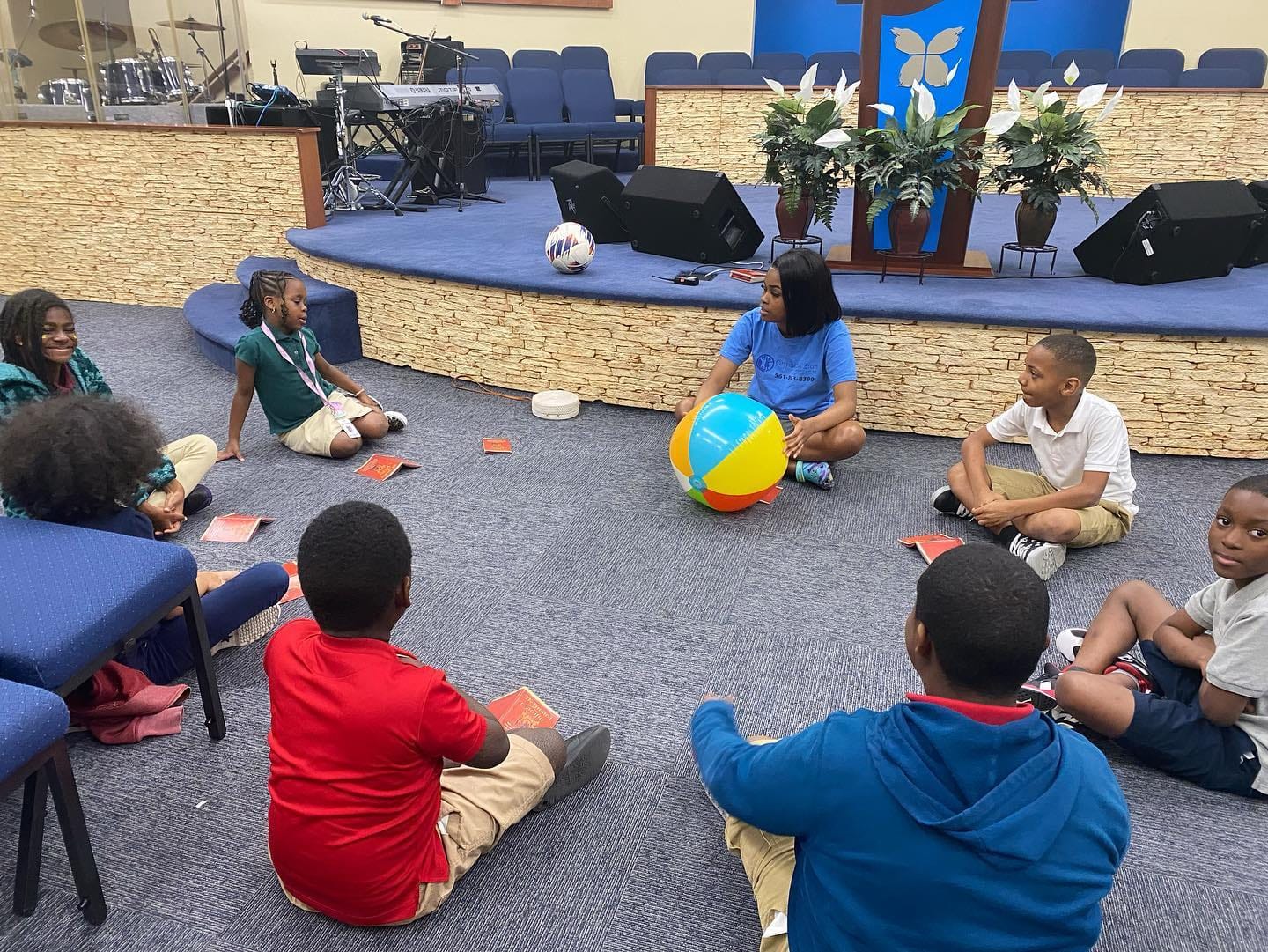
Sacred Heart and Orthodox Zion Palm Beach County, both private faith-based afterschool programs, reinforce faith values such as generosity, charity and gratitude in their Afternoon Meeting lessons on building social awareness and relationship skills.
Sites may use different names for their dedicated Afternoon Meeting rotations such as “Magic Circle Time”, “Well-being Circle”, “SLL time” and empower youth to choose the themes they want to focus on. Directors integrate components of Afternoon Meeting in their staff meeting or check-in time to sustain adult practice and prioritize staff well-being.
My Two Cents
As Prime Time’s Well-being and Life Skills Specialist, witnessing this evolution while supporting OST communities in professional learning and implementation has taught me a few things.
- Afternoon Meeting à la Prime Time, called by different names but true to the core structure and practices, will always be relevant and needed for all humans in OST.
- The inside-out approach of implementing Afternoon Meeting while working with both adult and youth practice simultaneously, fosters a deeper, more sustainable culture of well-being.
- The OST environment is perfect for learning resiliency skills because it offers flexibility and requires a growth mindset to deal with constant change.
- OST directors and practitioners are natural innovators in making Afternoon Meeting a routine for youth once they are practicing resiliency themselves and have consistent support.
- Most practitioners I have worked with are, by virtue of a demanding OST environment, already practicing resiliency skills and teaching them to youth. Listening and watching them in action to first learn and understand their culture of well-being has enhanced my coaching abilities in supporting more explicit skill-building and more meaningful Afternoon Meetings and youth interactions.
Finally, as we face the imminent global mental health pandemic affecting youth and teens today, and increasing staff burnout and turnover in the OST field, I am convinced that the Afternoon Meeting in OST will become an even more crucial cornerstone in building more resilient communities from the inside out. To learn more about Prime Time’s Well-being and Life Skills Initiative and Afternoon Meeting click here.
(i) Kernels of Practice for SEL: Low-Cost, Low-Burden Strategies. Stephanie Jones, Rebecca Bailey, Katharine Brush, Jennifer Kahn. Harvard Graduate School of Education. December 8, 2017. Available at https://wallacefoundation.org/sites/default/files/2023-09/Kernels-of-Practice-for-SEL.pdf
(ii) Skills for Success: Developing Social and Emotional Competencies in Out-of-School-Time Programs. Jennifer T. Leschitz, Susannah Faxon-Mills, Andrea Prado Tuma, Katie Tosh, Catherine H. Augustine, Heather L. Schwartz. February 27, 2023. Available at https://www.rand.org/pubs/research_reports/RRA379-11.html
(iii) “What is Afternoon Meeting?” Well-being and Life Skills Initiative. Primetimepbc.org. Prime Time Palm Beach County. Available at https://www.primetimepbc.org/well-being
(iv) “Developing Adults’ Capacity to Promote Social and Emotional Learning.” Episode 2: Why building adults’ skills is a starting place for promoting SEL in children. The Wallace Foundation Podcast. February 23, 2021. Available at https://wallacefoundation.org/resource/podcast/developing-adults-capacity-promote-social-and-emotional-learning
(v) Well-being and Life Skills Morning to Night. Prime Time Palm Beach County. Revised September 2023. Available at https://primetimepbc.org/wp-content/uploads/2023/10/Welllness_MorningtoNight.pdf
(vi) “Skills for Learning and Life.” Palmbeachschools.org. School District of Palm Beach County. Available at https://www.palmbeachschools.org/departments/behavioral-and-mental-health/skills-for-learning-life-sll
(vii) “Well-being and Life Skills Initiative.” Prmetimepbc.org. Prime Time Palm Beach County. Available at https://www.primetimepbc.org/well-being

